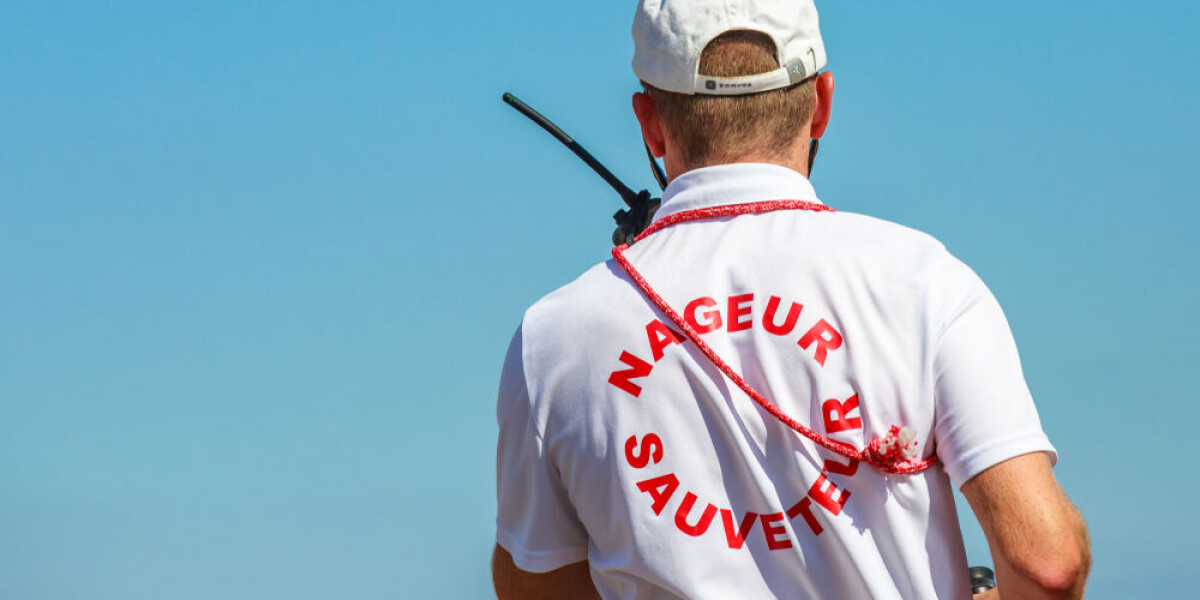
French beaches do not have enough lifeguards for august
- Select a language for the TTS:
- UK English Female
- UK English Male
- US English Female
- US English Male
- Australian Female
- Australian Male
- Language selected: (auto detect) - EN
Play all audios:

Beaches across France are warning they do not have enough lifeguards to cover August, it has emerged. La Société nationale de sauvetage en mer (SNSM) has said it is launching AN EMERGENCY
RECRUITMENT CAMPAIGN to try and rectify the situation. “In August, many beaches in France will not be supervised, as there is not enough staff,” said SNSM, which provides lifeguards, and is
also the coastguard. SNSM has also opened its ranks to a broader range of recruits. Normally, the association requires six diplomas and one year's training. But now, anyone with the
qualifications of the _Brevet national de sécurité et de sauvetage aquatique_ (BNSSA) and the _Premiers secours en équipe de niveau 1_ can apply to be part of the SNSM from next month.
People who would like to apply for August are invited to EMAIL THEIR APPLICATION as soon as possible. The SNSM is also hoping that this summer’s recruitment will lead to more lifeguards for
next year. Next year could require even more lifeguards than normal due to extra visitors in France for the Paris Olympics. The association said: “We will also invite [applicants] to
continue their training next year if they want to obtain the four remaining qualifications.” People who would like to go through the full SNSM training for 2024 are also invited to apply
now, VIA THE SNSM WEBSITE. In France, mairies are responsible for beach safety within 300 metres of the shore. Lifeguards from the SNSM are typically employed and paid seasonally. They are
normally given free accommodation nearby as part of their summer package. WHAT TYPES OF LIFEGUARDS ARE THERE IN FRANCE? There are two kinds of lifeguards. Firstly, the ‘_nageur-sauveteur
_(swimmer-saver)’ and the ‘_maître nageur-sauveteur_’ (MNS, master swimmer-saver). The latter is also a swim instructor and a water safety expert, but France is lacking 5,000 of these. This
may be because the MNS level requires more training and is not necessary for seasonal work. Lifeguards are also typically required to work antisocial hours, including weekends, evenings, and
holidays. Christel Clapies, an instructor at CREPS PACA, a school that trains MNSs in the south of France, told _The Connexion_: “In terms of rescue and first aid, the nageur-sauveteur is
just as qualified as the MNS, so you will be safe regardless. “But in the long term, it does mean that fewer people will learn how to swim, and that is the bigger issue.” DROWNING FATALITIES
INCREASE SLIGHTLY Between June 1 and July 12, 2023, 362 drowning incidents were recorded across France, of which 109 were fatal (30%), SHOW FIGURES from health authority Santé publique
France (SPF). Between the years 2021 and 2023, the total number of incidents during the six weeks of summer dropped by 19%, SPF said. However, there was a slight increase in deaths, from 25%
of incidents in 2021 to 30% in 2023. Adults are most likely to die following drowning incidents, with 53% fatalities in adults compared to just 3% among children aged under six. SPF
suggested that the lifting of Covid restrictions in 2021, combined with good weather, could be a reason for more people going swimming in the sea, and therefore more people getting into
difficulty. WARNING AGAINST FALSE ALERTS Coastguards in France have also warned people against calling them for minor issues (such as a stuck buoy, or property left on the beach), and to
only call in a genuine emergency. They also warned people to let others know if they are going into the sea, and to pick up all their belongings when returning home after using the beach, to
avoid others mistakenly thinking that they may still be in the water. Quentin de Fierville, a member of the coastguard team in Bandol, Var, TOLD BFMTV: “If we are going after a false alarm,
the time it takes to figure out that it’s a false alarm, we’re not available for a real emergency, such as someone in the water in real difficulty.” To call the coastguard for a genuine
emergency in France, dial 196 or 112. READ ALSO BRITISH MAN DROWNS AFTER BEING CAUGHT IN RIPTIDE IN SOUTH-WEST FRANCE RIPTIDES ON FRENCH COAST: HOW TO AVOID AND WHAT TO DO IF CAUGHT
‘TROMPE-L’OEIL’ HOMAGE TO COASTGUARDS IN BRITTANY WINS PRIZE
